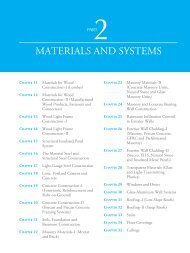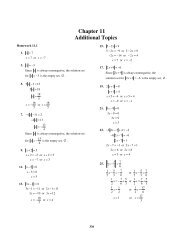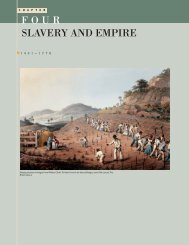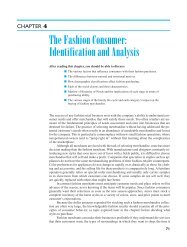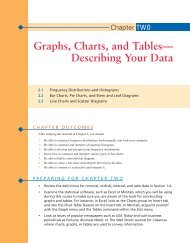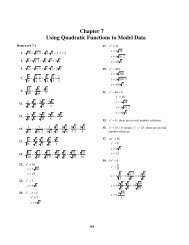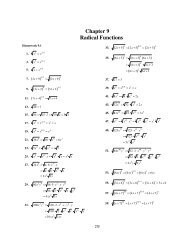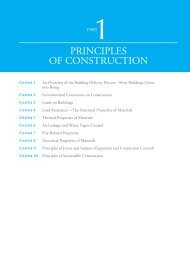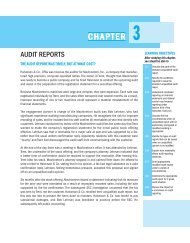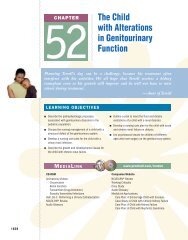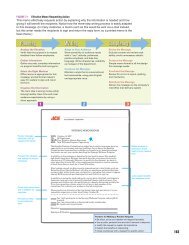Baldwin/Whiteside: Introduction to Contracts - Pearson
Baldwin/Whiteside: Introduction to Contracts - Pearson
Baldwin/Whiteside: Introduction to Contracts - Pearson
Create successful ePaper yourself
Turn your PDF publications into a flip-book with our unique Google optimized e-Paper software.
Chapter Five<br />
_______________<br />
PROBLEMS OF<br />
FORMATION<br />
_______________<br />
Here are more terms for your students <strong>to</strong> recite as a litany: duress, undue influence, unconscionability,<br />
mistake, misrepresentation, and fraud.<br />
We cannot suggest a great deal other than what we put in<strong>to</strong> the textbook. Ask your students <strong>to</strong> think of<br />
examples of each defense.<br />
Suggested Test Questions for Chapter Five<br />
1. Name and give examples of three types of duress. [Physical, mental, emotional. You can<br />
decide if the student’s examples are relevant.]<br />
2. What must be present for the allegation of fraud, as opposed <strong>to</strong> undue influence or mistake?<br />
[Intent <strong>to</strong> misrepresent a material fact.]<br />
3. List the elements of fraud. [Misrepresentation of material fact, scienter, intent, reliance, and<br />
damages.]<br />
4. Explain the difference in a mistake of fact and a mistake of law. [Mistake of fact may result in<br />
rescission of contract. Mistake of law does not result in rescission of contract. Mistake of<br />
law occurs when one party, possessing complete knowledge of the facts of the transaction,<br />
comes <strong>to</strong> an erroneous conclusion as <strong>to</strong> the legal effect of the transaction.]<br />
5. True or false: Silence may be construed as a misrepresentation. [True.]<br />
5. The meaning of “scantier” is<br />
(a) intent <strong>to</strong> defraud<br />
[b] guilty knowledge<br />
(c) misrepresentation<br />
7. In order <strong>to</strong> prove fraud, one must link misrepresentation of a material fact <strong>to</strong> a deliberate intent <strong>to</strong><br />
[deceive].<br />
8. List three elements of misrepresentation. [Material fact, reliance thereon, and damages<br />
resulting therefrom.]<br />
9. In order <strong>to</strong> prove undue influence, one must prove a [fiduciary relationship] existed between<br />
the parties involved.<br />
10. A [material] mistake is one that is so fundamental that the parties could not have consented <strong>to</strong><br />
the essential facts surrounding the agreement.<br />
Case Law for Chapter Five<br />
Beachcomber Coins, Inc. v. Boskett, 166 N.J. Super. 442, 400 A.2d 78 (1979)<br />
13



